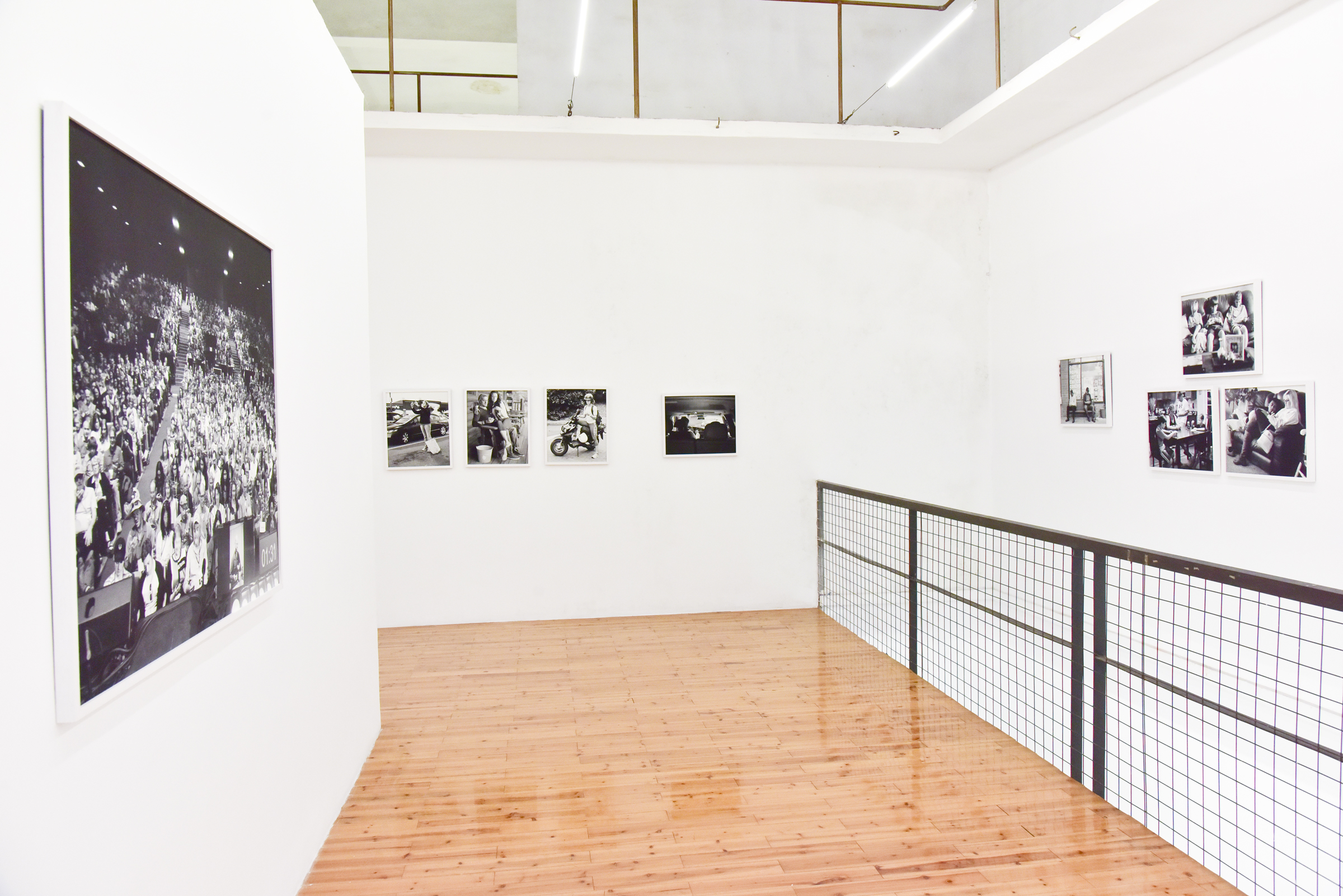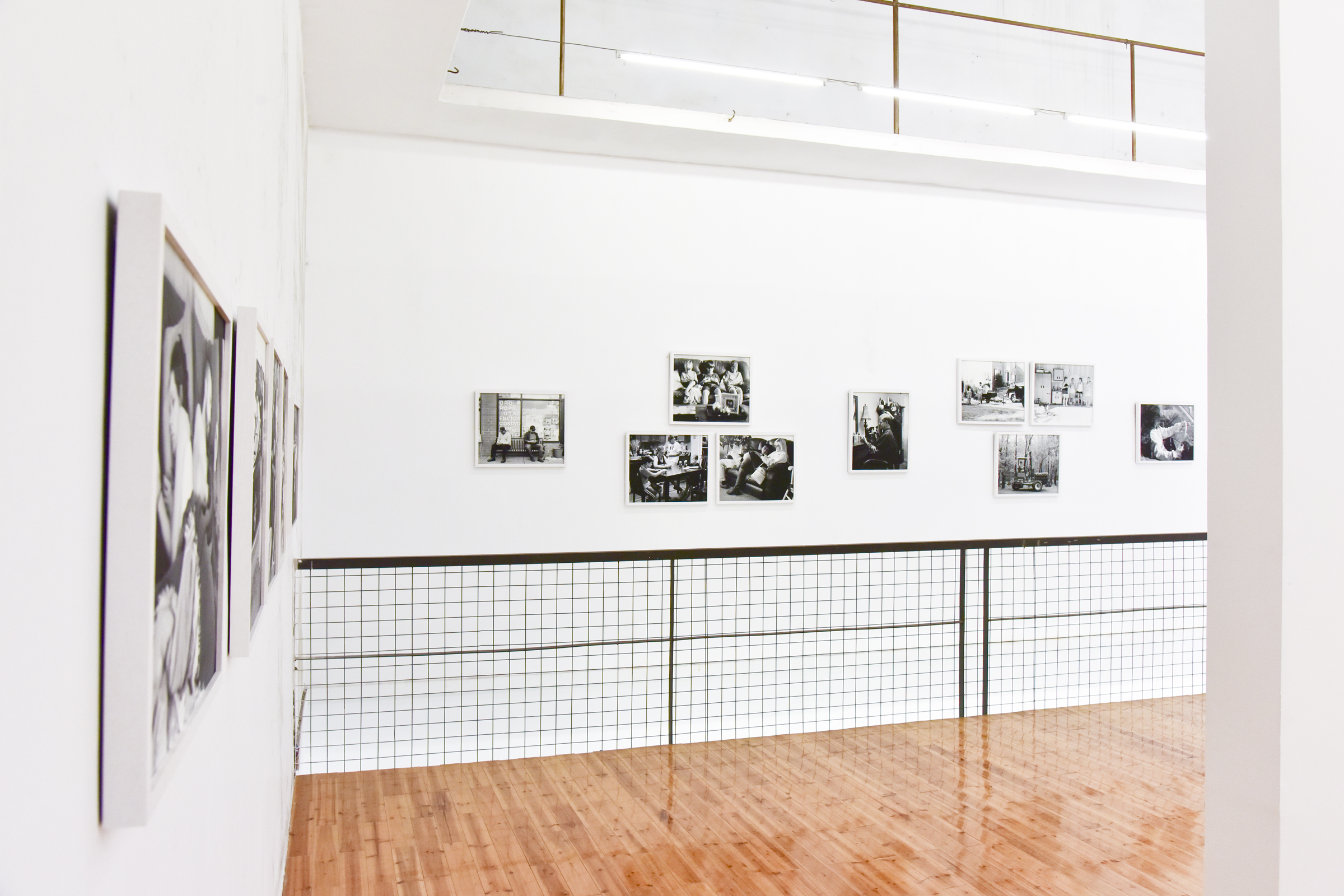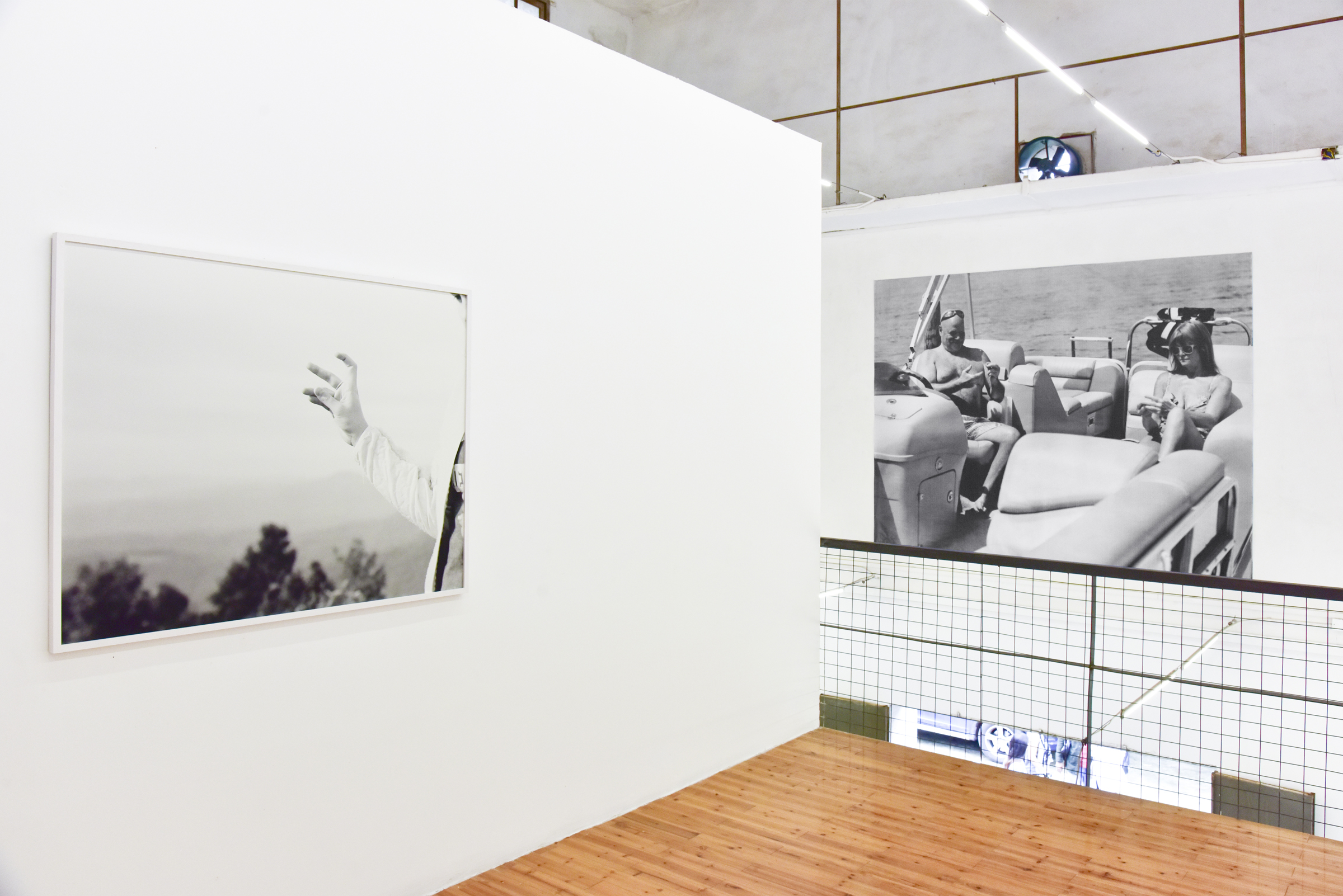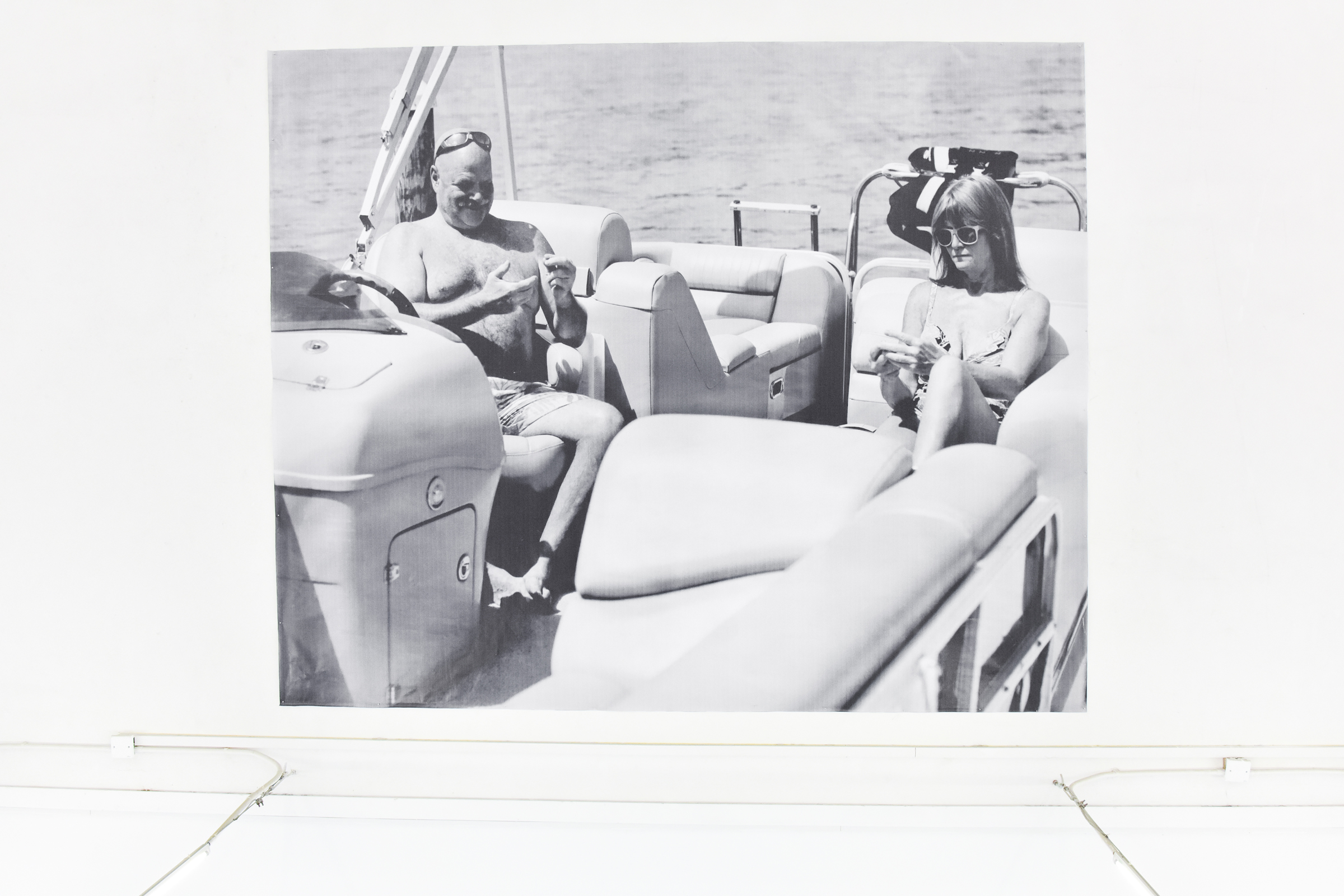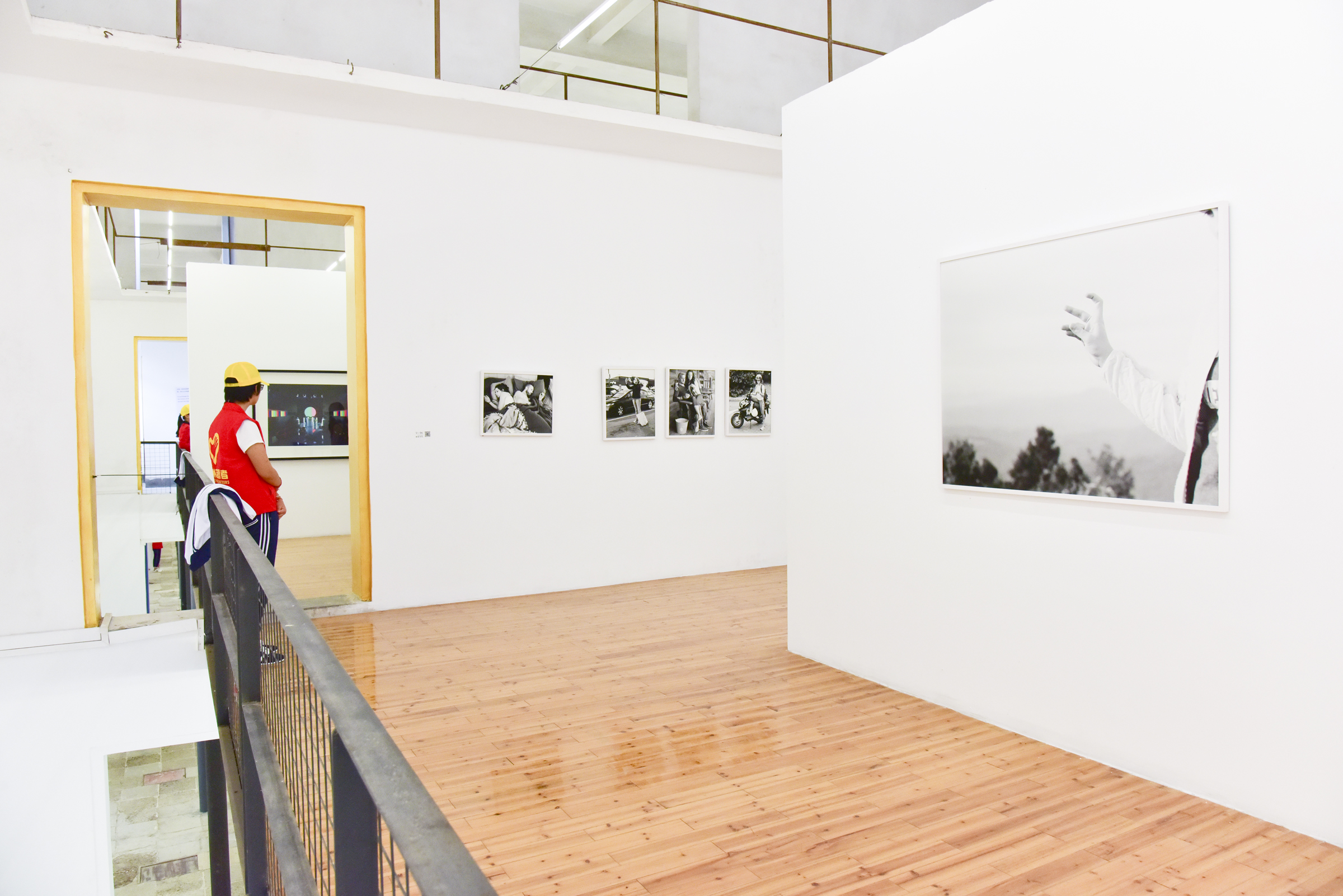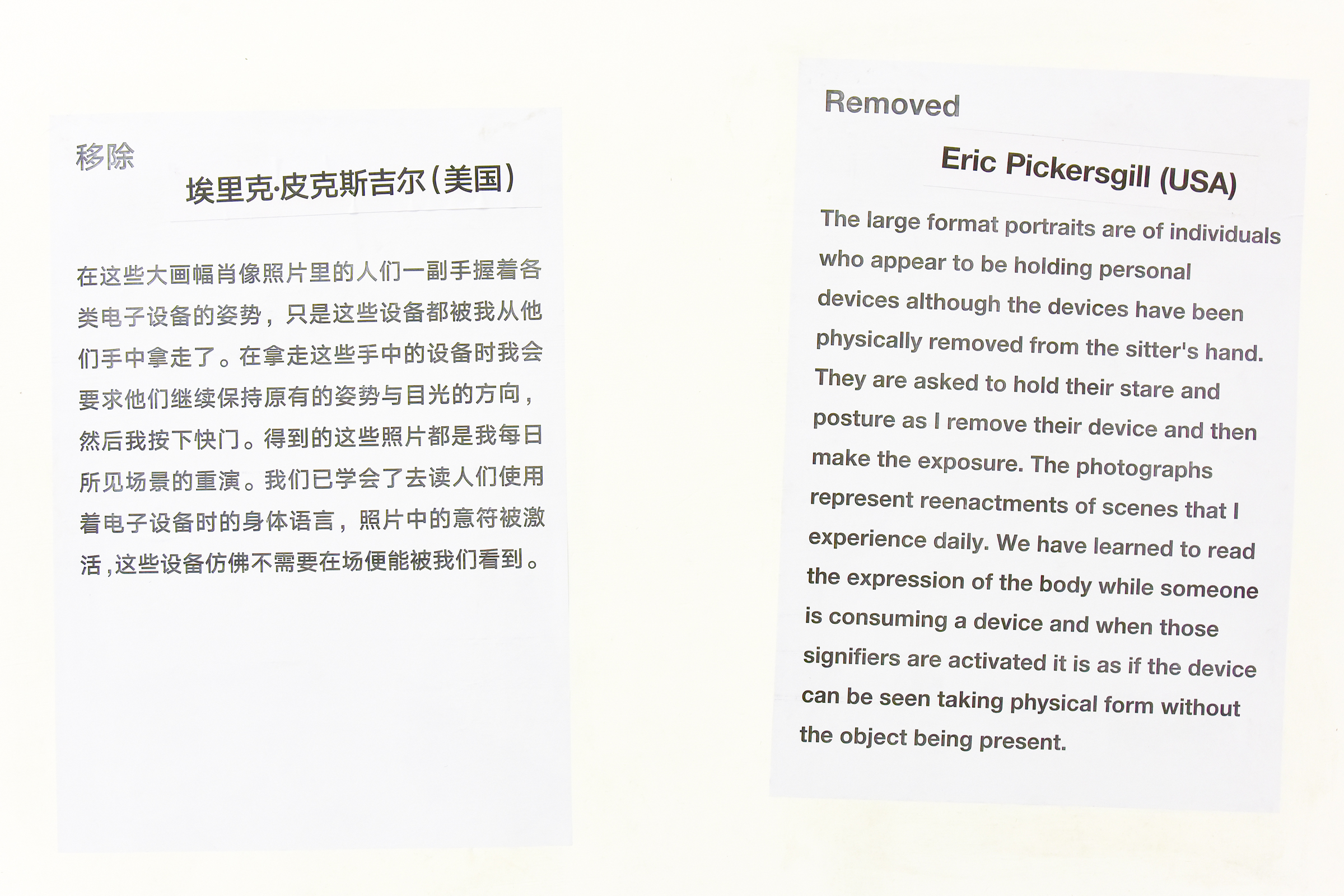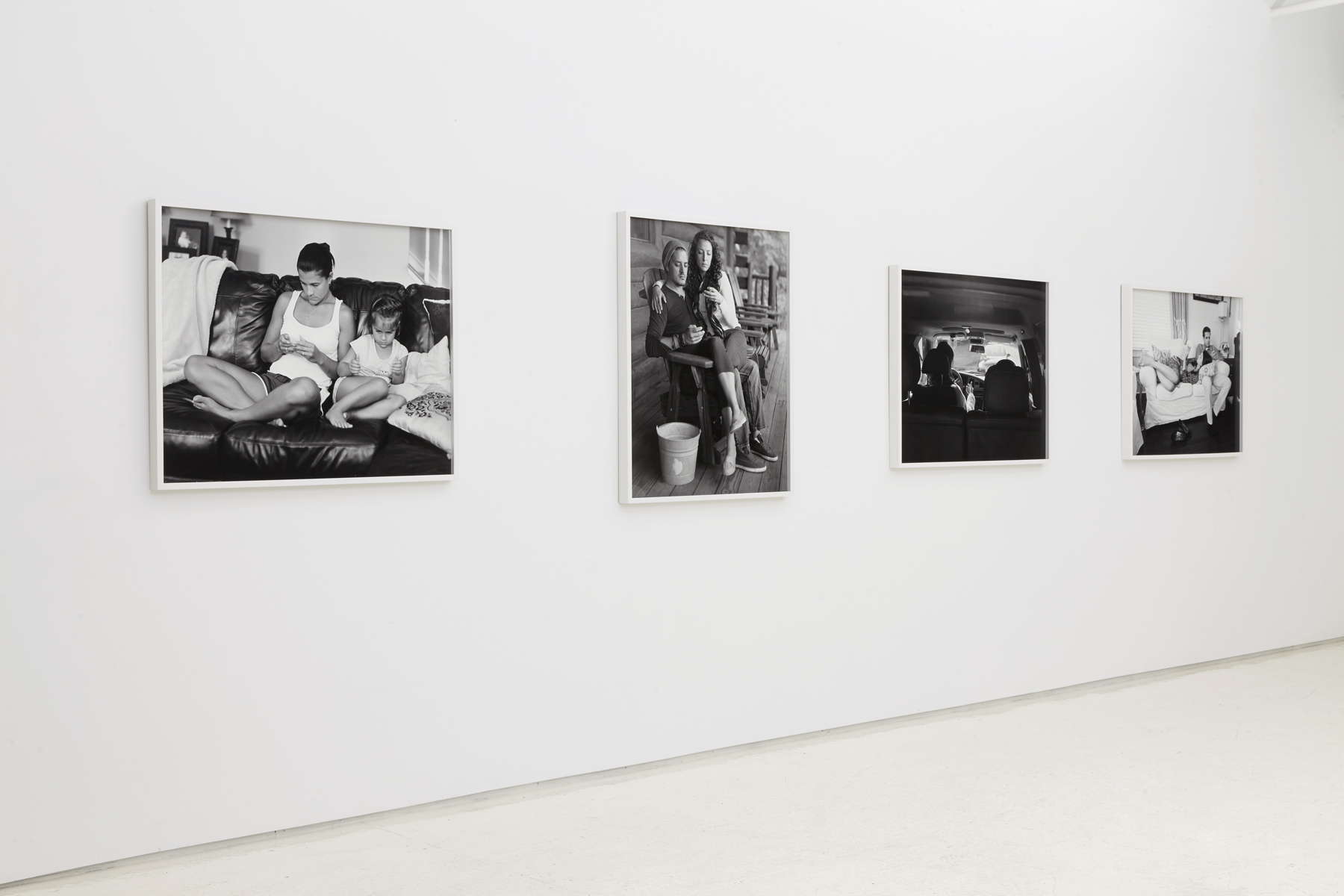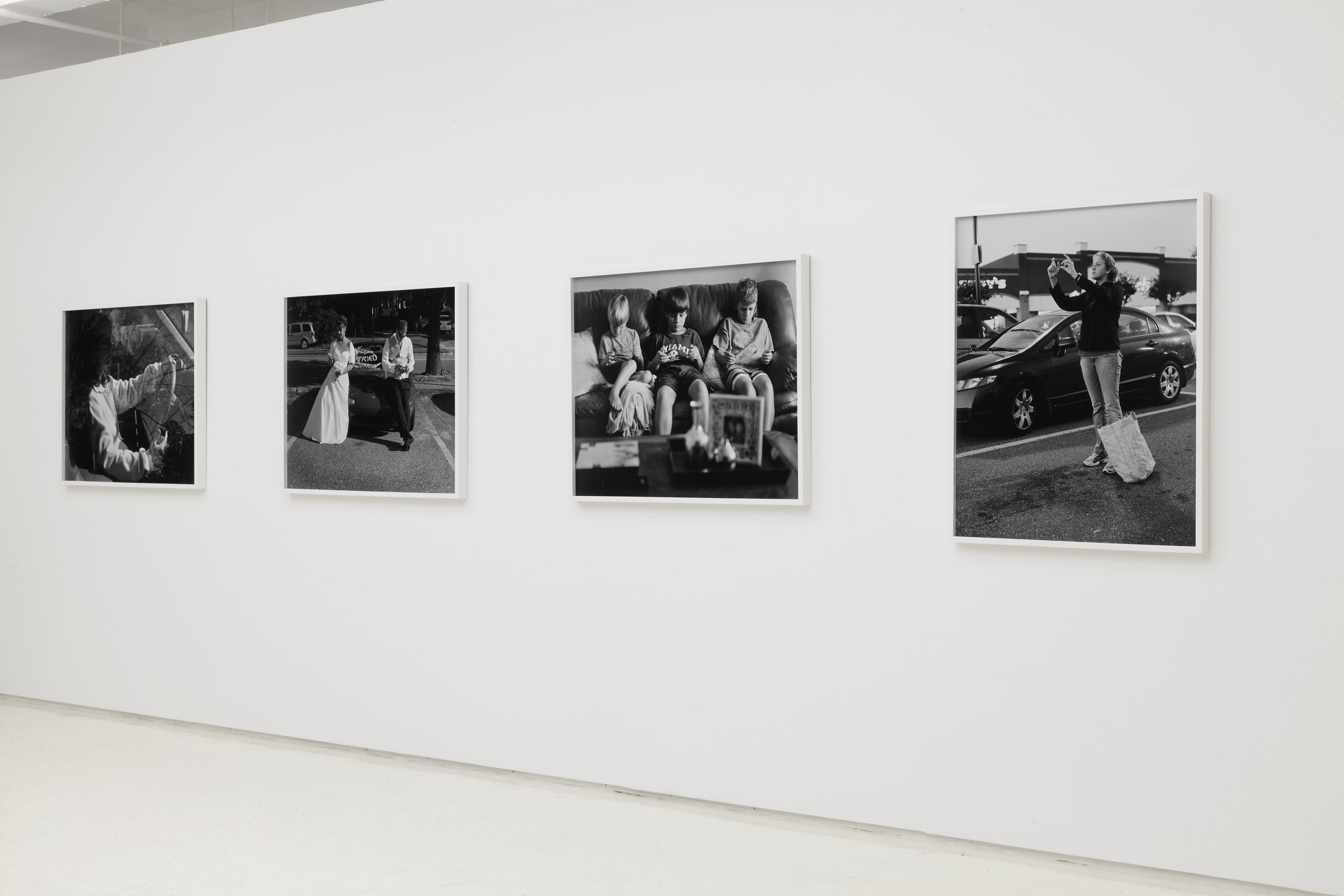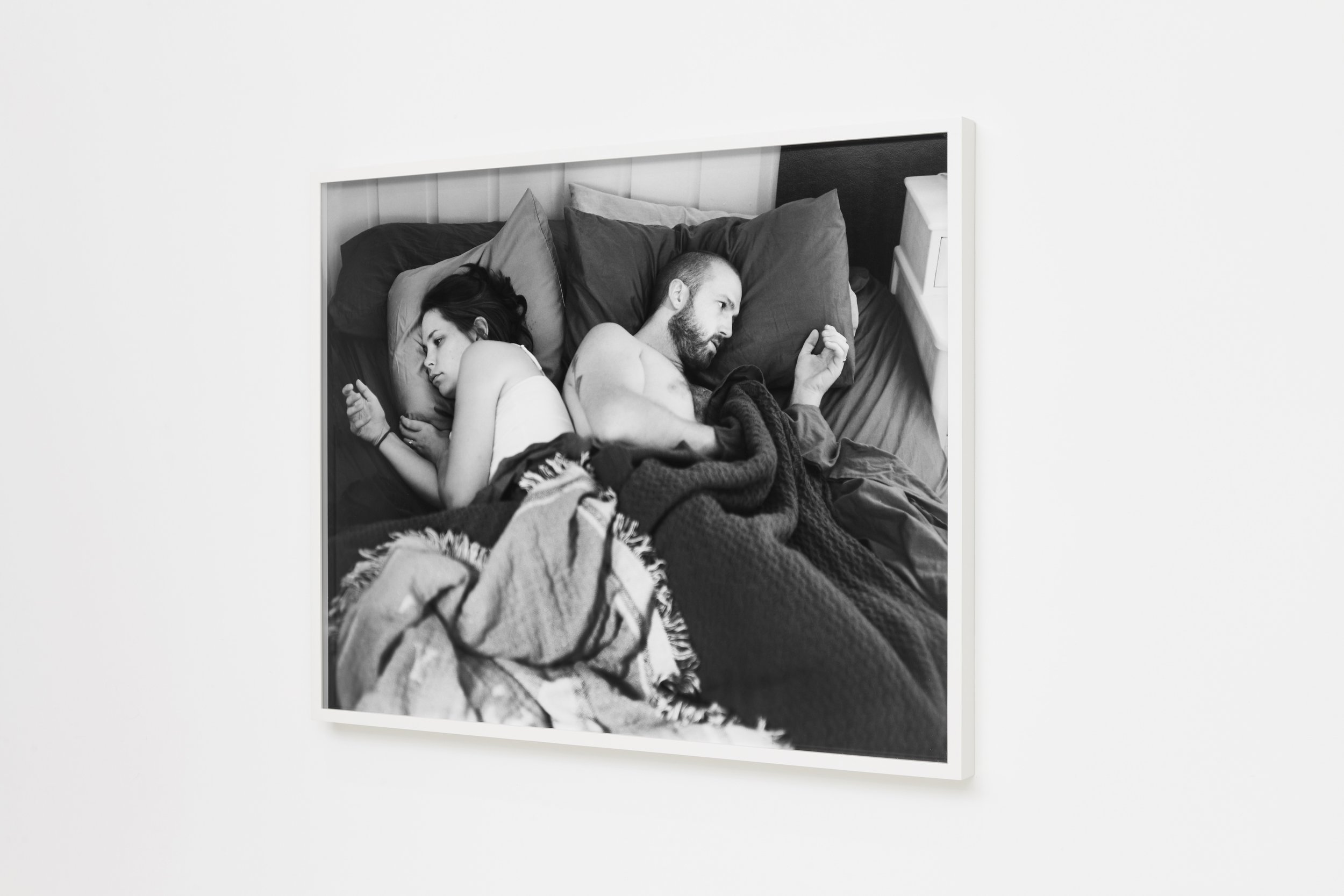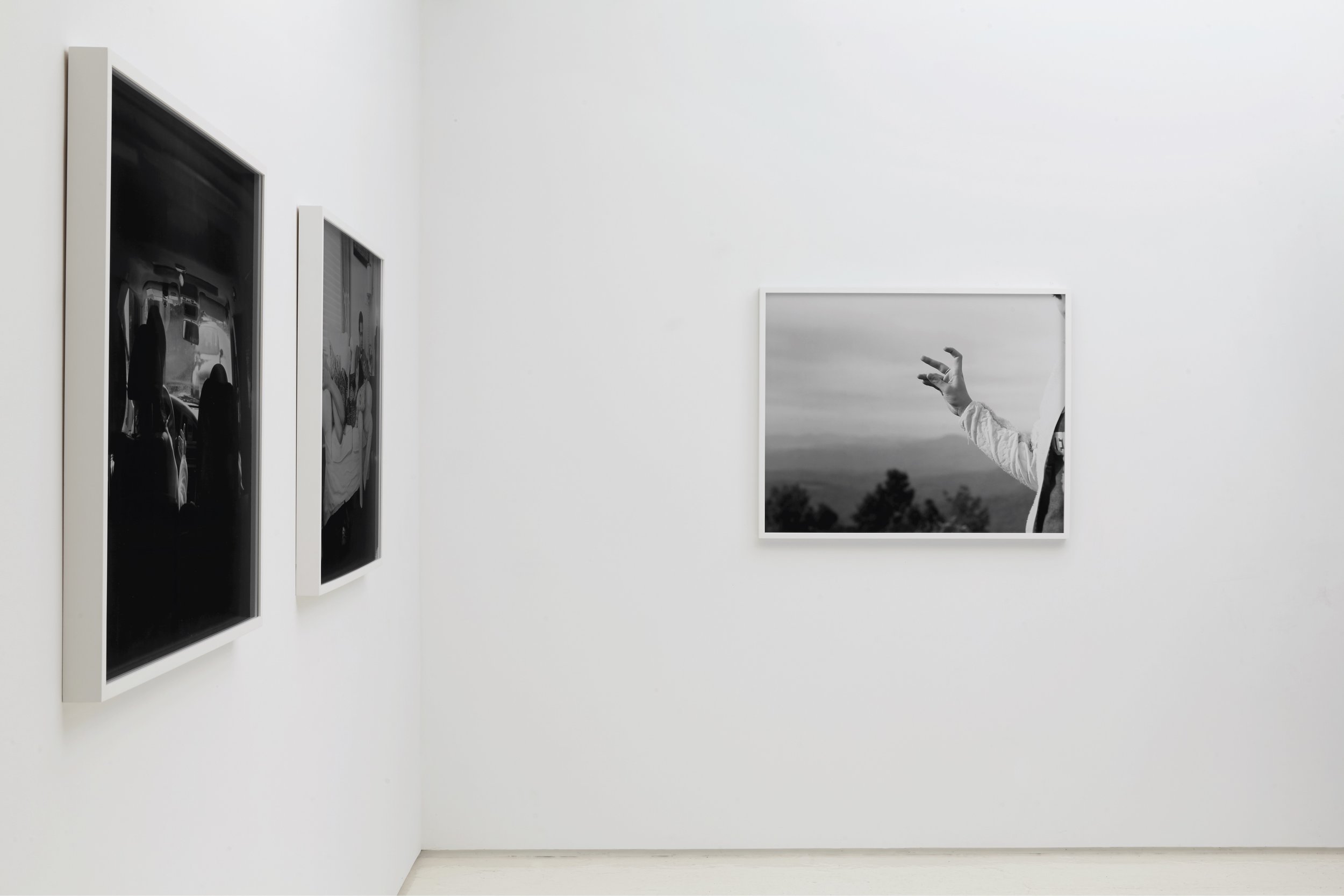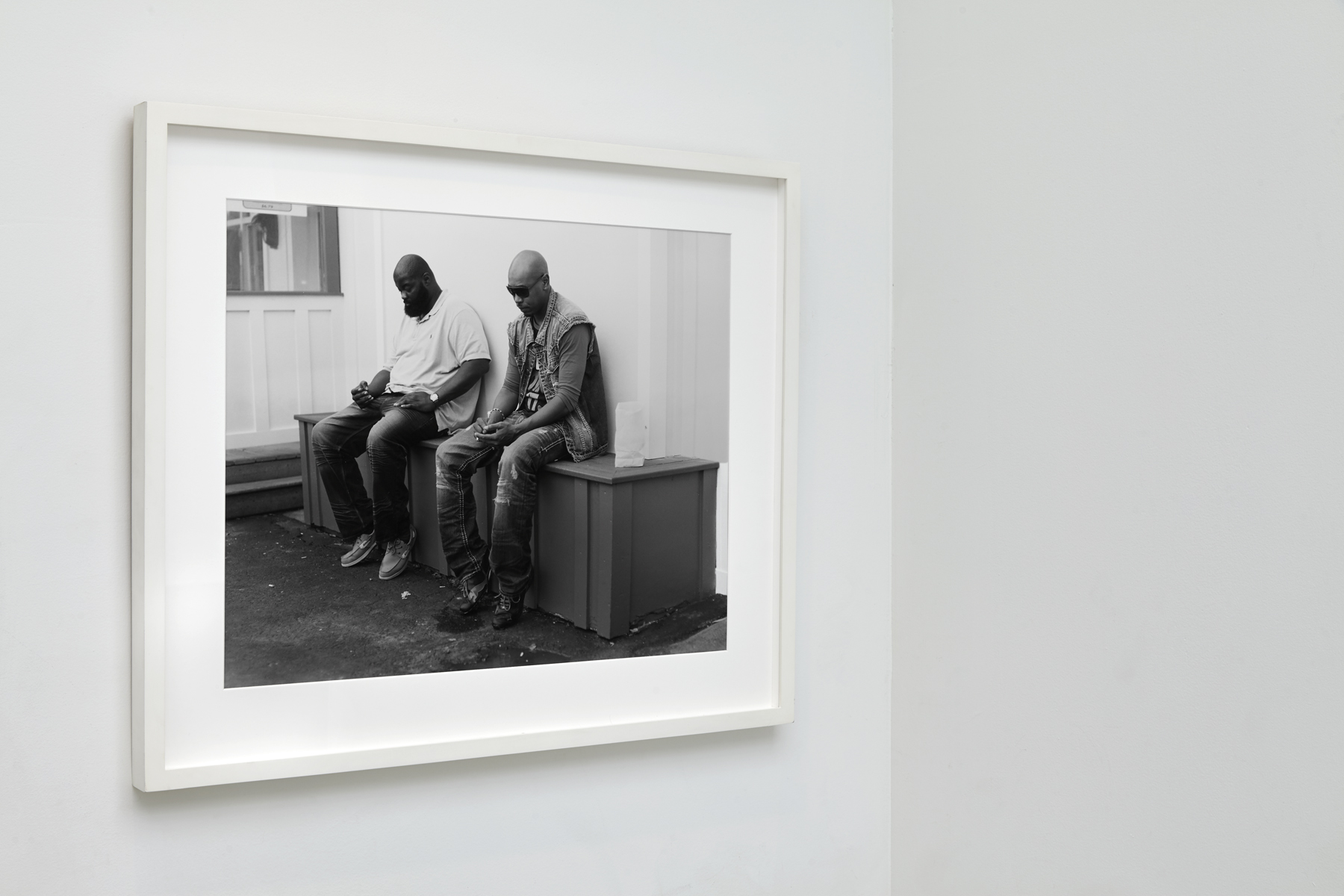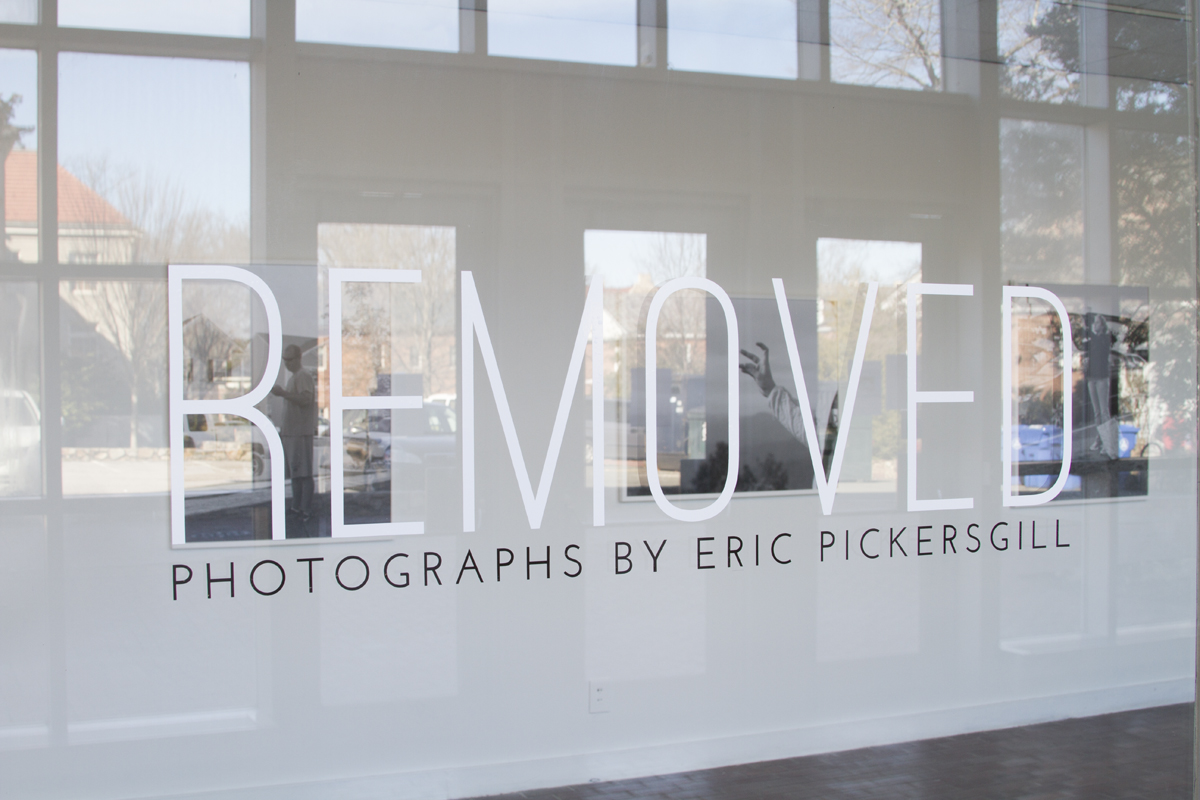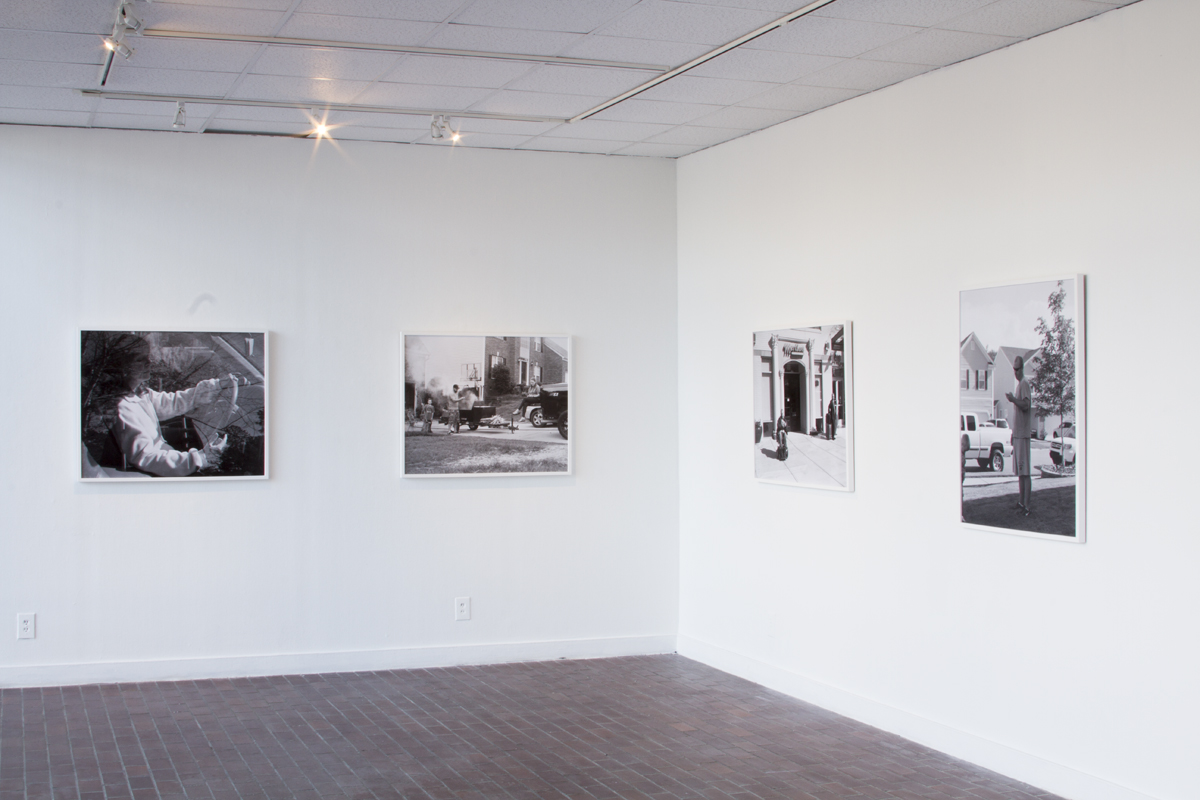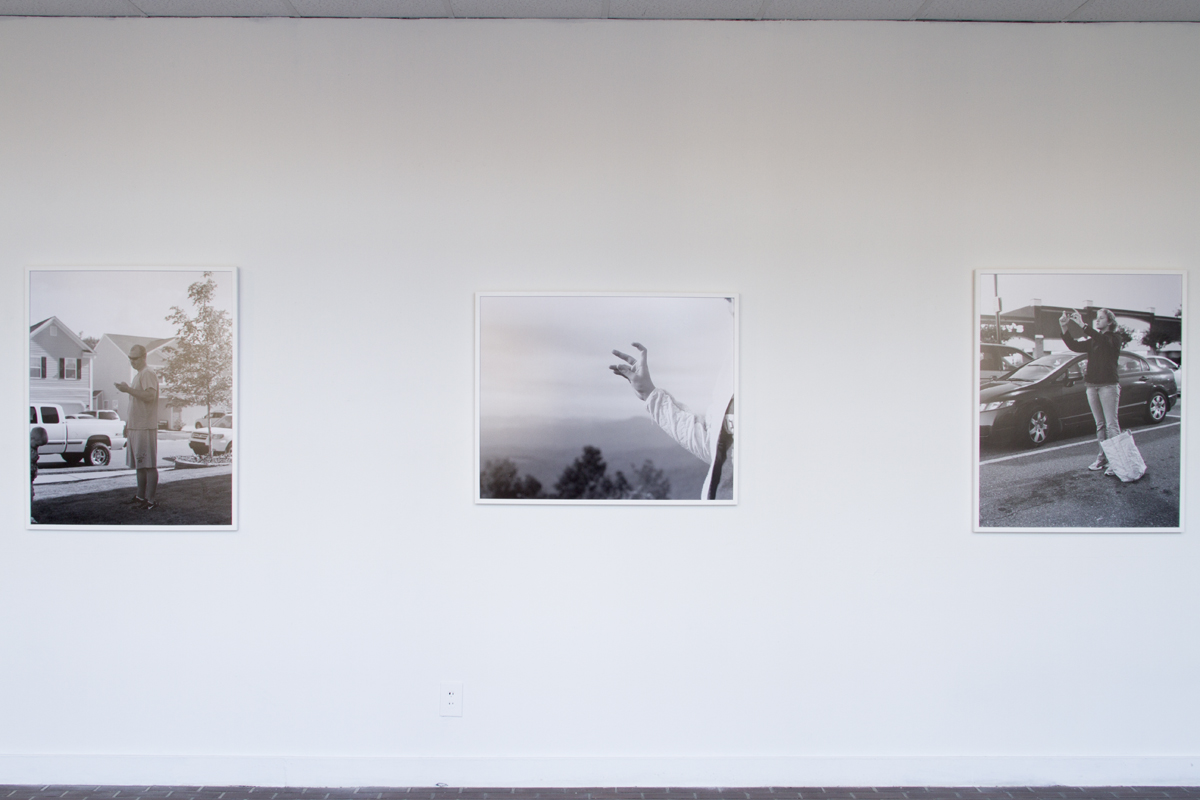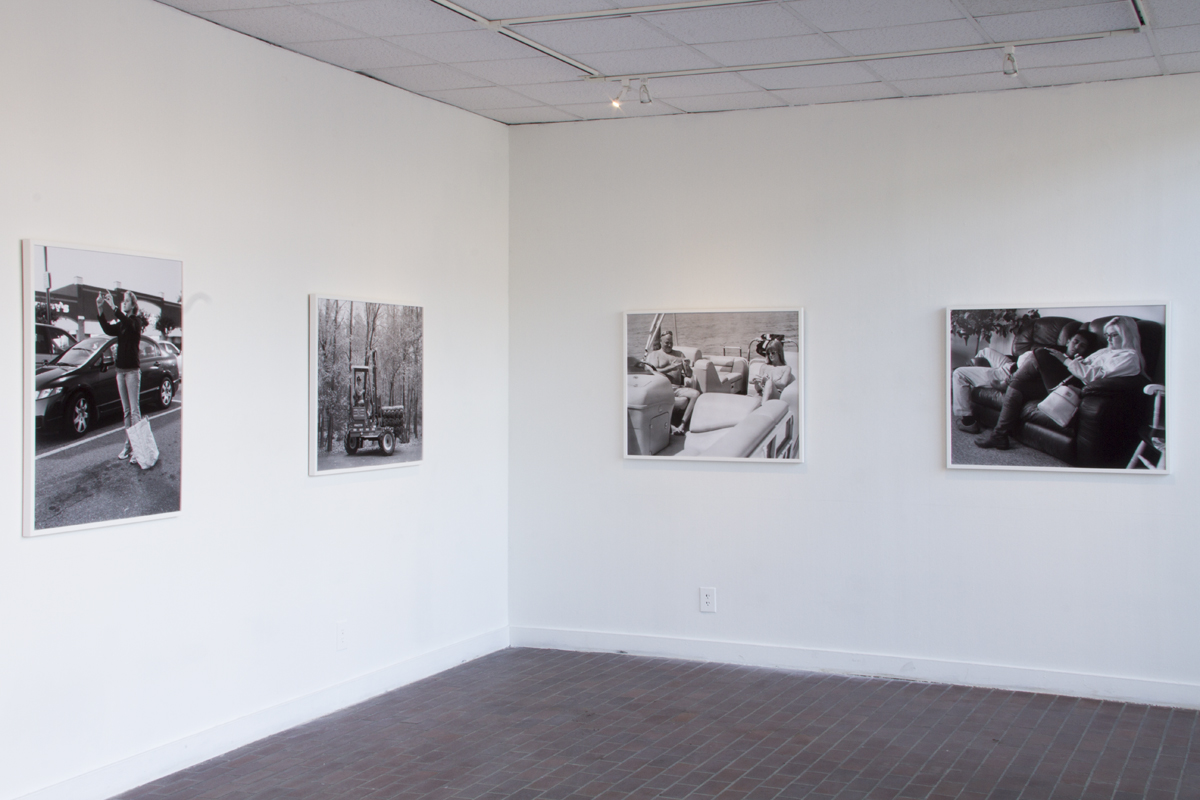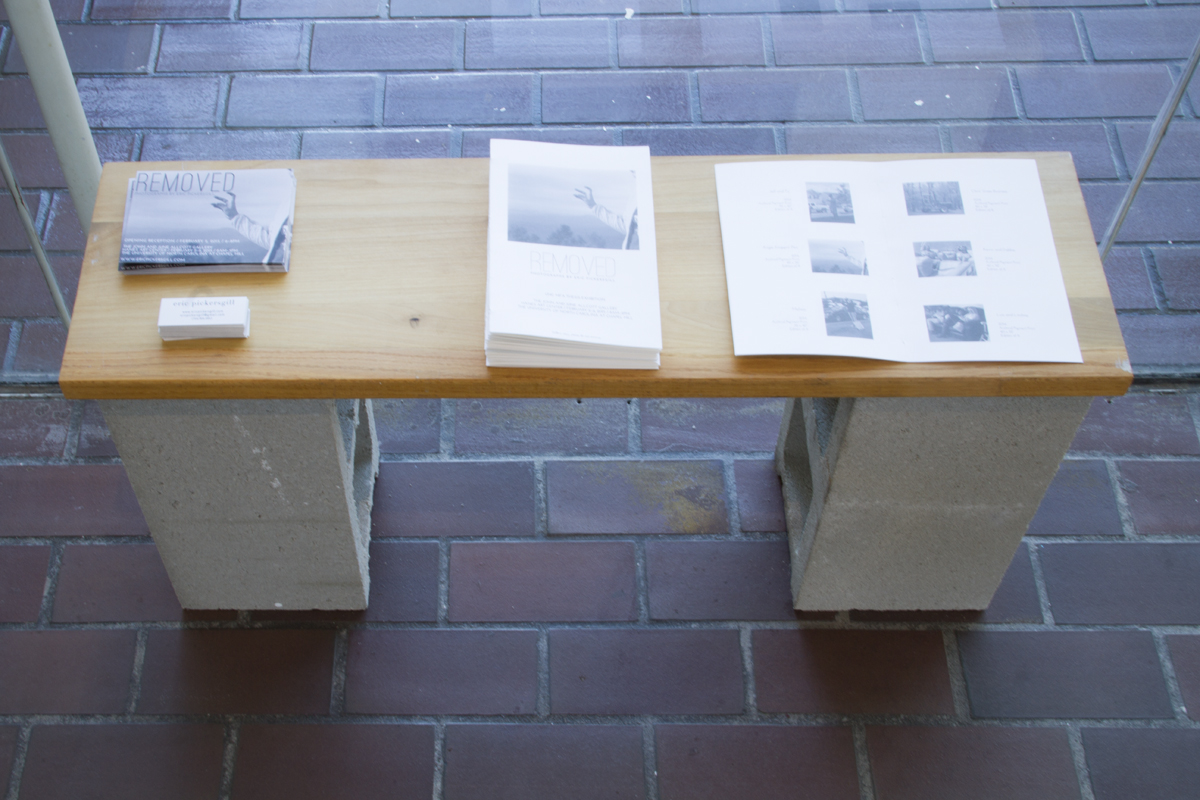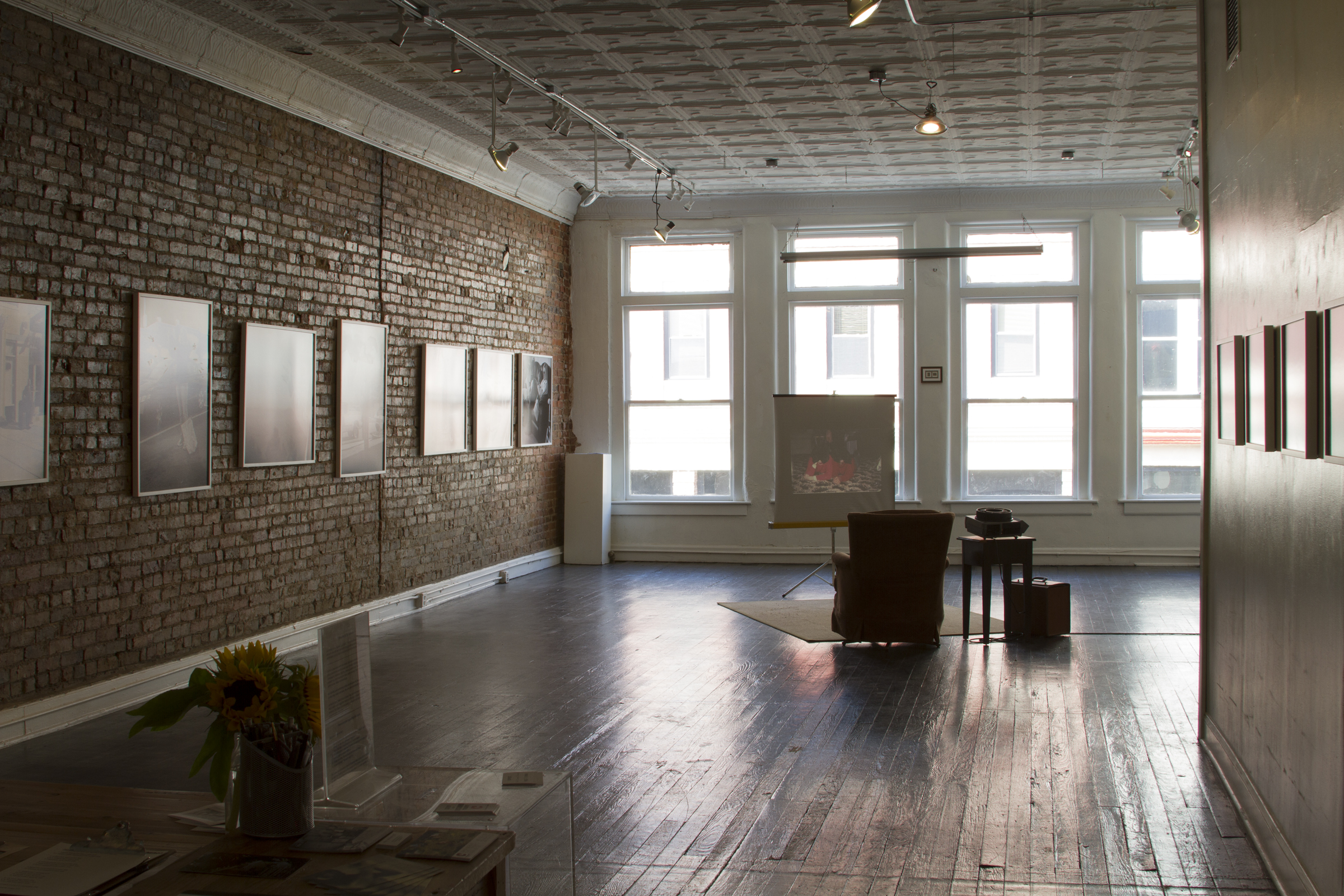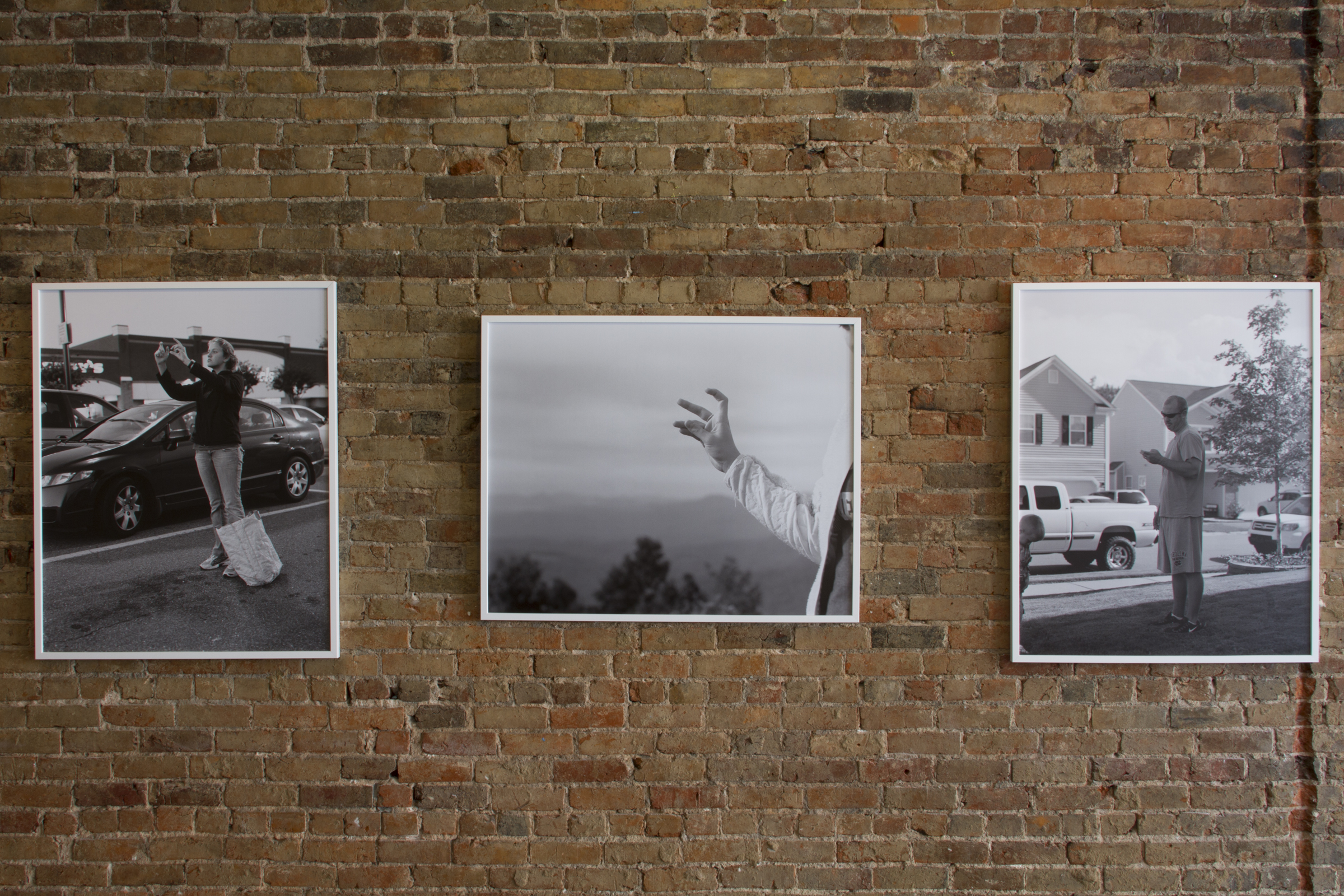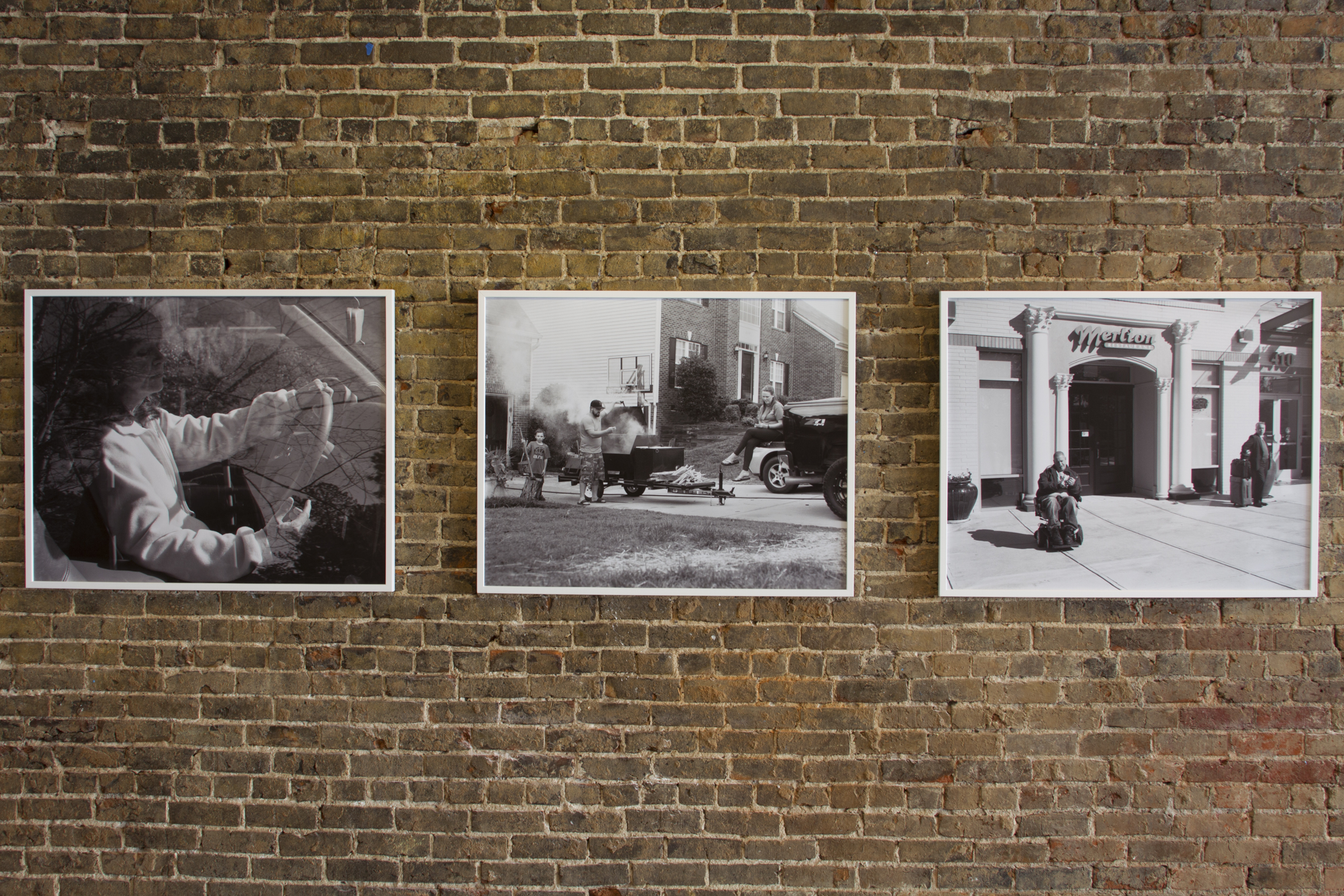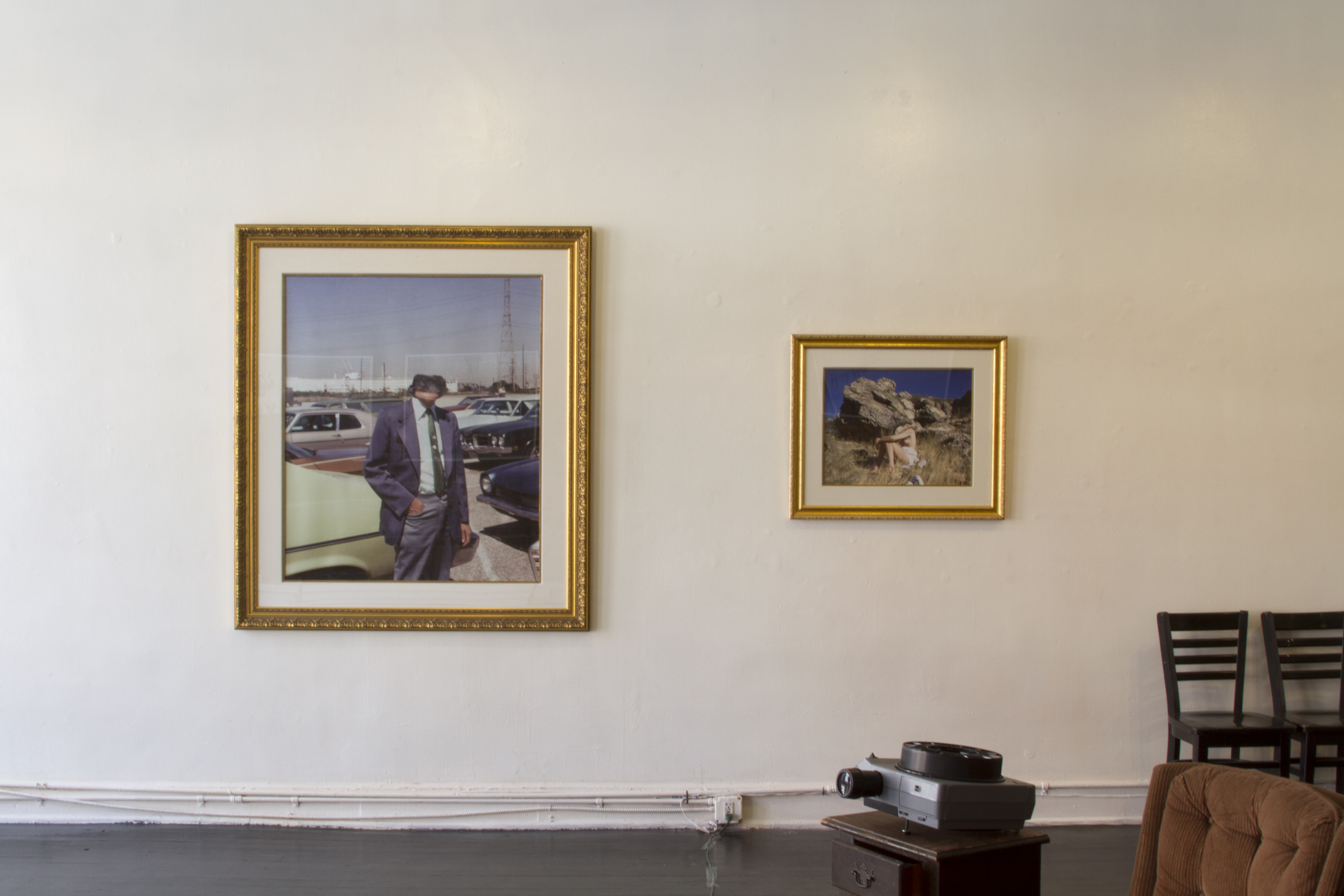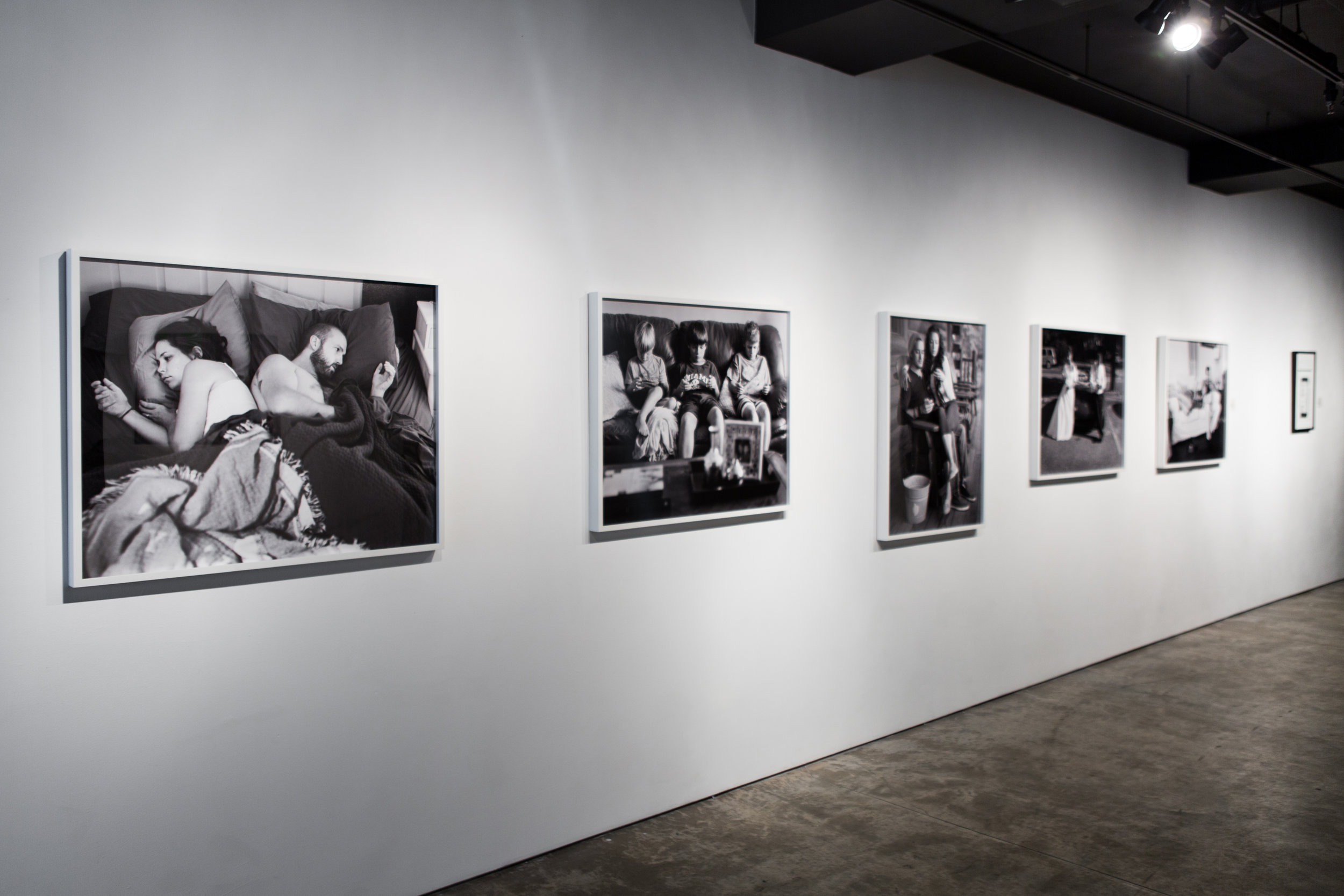Project Statement
The joining of people to devices has been rapid and unalterable. The application of the personal device in daily life has made tasks take less time. Far away places and people feel closer than ever before. Despite the obvious benefits that these advances in technology have contributed to society, the social and physical implications are slowly revealing themselves. In similar ways that photography transformed the lived experience into the photographable, performable, and reproducible experience, personal devices are shifting behaviors while simultaneously blending into the landscape by taking form as being one with the body. This phantom limb is used as a way of signaling busyness and unapproachability to strangers while existing as an addictive force that promotes the splitting of attention between those who are physically with you and those who are not.
The work began as I sat in a café’ one morning. This is what I wrote about my observation:
Family sitting next to me at Illium café in Troy, NY is so disconnected from one another. Not much talking. Father and two daughters have their own phones out. Mom doesn’t have one or chooses to leave it put away. She stares out the window, sad and alone in the company of her closest family. Dad looks up every so often to announce some obscure piece of info he found online. Twice he goes on about a large fish that was caught. No one replies. I am saddened by the use of technology for interaction in exchange for not interacting. This has never happened before and I doubt we have scratched the surface of the social impact of this new experience. Mom has her phone out now.
The image of that family, the mother’s face, the teenage girls’ and their father’s posture and focus on the palm of their own hands has been burned in my mind. It was one of those moments where you see something so amazingly common that it startles you into consciousness of what’s actually happening and it is impossible to forget. I see this family at the grocery store, in classrooms, on the side of the highway and in my own bed as I fall asleep next to my wife. We rest back to back on our sides coddling our small, cold, illuminated devices every night.
The large format portraits are of individuals who appear to be holding personal devices although the devices have been physically removed from the sitter’s hand. They are asked to hold their stare and posture as I remove their device and then I make the exposure. The photographs represent reenactments of scenes that I experience daily. We have learned to read the expression of the body while someone is consuming a device and when those signifiers are activated it is as if the device can be seen taking physical form without the object being present.
Eric Pickersgill is a full time artist, husband, and father working in North Carolina. He received a Master of Fine Arts degree at The University of North Carolina at Chapel Hill in 2015. He was born in Homestead, Florida in 1986 and spent his teenage years in Charlotte, North Carolina. Eric received a Bachelor of Fine Arts degree with a concentration in Fine Art Photography from Columbia College Chicago in 2011. Between 2011 and 2013 Eric taught high school in Charlotte, NC via Teach for America.
His passion for teaching and image making allows him to see the connections that the two share. The work Eric makes is often about photography as he explores the psychological and social effects that cameras and their artifacts have on individuals and societies as a whole. Eric has exhibited and presented his work internationally at institutions, galleries, and art fairs such as The North Carolina Museum of Art, Pantheon-Sorbonne University, The Ackland Art Museum, Rick Wester Fine Art, Pulse Art Fair Miami, AIPAD, and many more.
Photo Consultant Julie Grahame is his agent
Exhibitions
Eric's work has been extensively published and exhibited internationally. For full exhibition list download cv. Prints are available here.
Video and Audio Interviews


